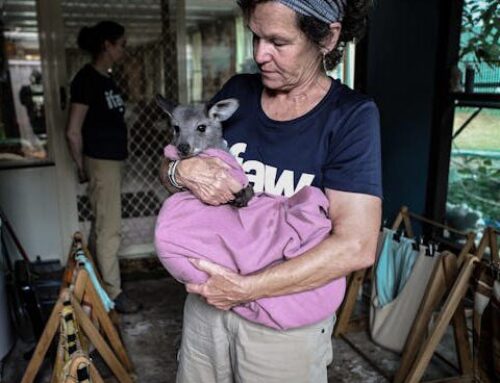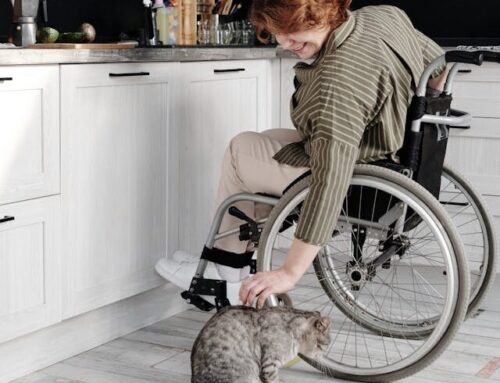When a senior loved one begins to require assistance with their daily activities or needs help managing a chronic condition, it becomes an emotional time for the entire family. Decisions about in-home care are often complex and deeply personal, and they can be complicated when siblings are involved in the decision-making process. Each family member may have their ideas about what is best, and without a clear plan for collaboration, disagreements can quickly escalate.
Tension among siblings also can heighten in situations when long-term care for an aging parent is both a “cash flow problem and a family problem,” reports LTC News, an online resource for long-term care information. Health insurance and Medicare only pay for a very limited number of skilled services and nothing toward long-term care required by most aging seniors, LTC News notes, and if a person does not have Long-Term Care insurance, the responsibilities fall to family or paid caregivers, or both.
Several studies in recent years point out devastating effects on family relationships when there is discord among siblings challenged with providing care for an elderly parent. Old sibling rivalries can flare as well as anger and resentment when one sibling has taken on most of the responsibility and worry. More sibling relationships will be challenged as the elder care decision crisis hits society’s demographic shores with the tsunami of aging Baby Boomers. A study by GoHealth found that one in three Millennials and two in five Gen Xers manage or help manage their parents healthcare, and that one in three Gen Xers and Millennials financially support their parents.
Taking on the healthcare affairs for an aging parent or grandparent will add more pressure to the lives of Millennials and Gen Xers who are juggling careers, child-rearing and other responsibilities. For siblings starting to navigate the senior care journey for elderly loved ones, the best approach is to map out a plan together before a care crisis hits. As National Siblings Day approaches on Wednesday, April 10th, consider giving each other the gift of compassionate collaboration with the end goal of ensuring that your elderly parents receive the best possible in-home care. Here are some tips to getting there:
Start the Home Care Conversation Early
Communication is the first step towards a consensus. Ideally, siblings should start discussing their loved one’s care needs before a crisis occurs. This proactive approach allows everyone to express their feelings, thoughts, and concerns in a less pressured environment.
Organize a Family Meeting
Set a time for a family meeting to discuss the various options for in-home care. If possible, include your elderly loved one in these discussions. Their input is crucial, as it’s their life and comfort at stake. During this meeting, consider the following:
Current and future care needs: Is the situation likely to progress, and how will care needs change over time?
Personal preferences: Does your loved one prefer care from a professional caregiver or a family member?
Financial considerations: What are the costs associated with in-home care, and how will they be covered?
Assign Roles Based on Strengths
Each sibling may have different abilities and resources they can bring to the table. Maybe one sibling has a financial background that can help sort through insurance and payment options. Another might have a more flexible schedule that allows them to attend doctor’s appointments. Assigning roles based on strength can help distribute the workload and keep the process organized.
Create a Care Plan
Once the needs and preferences are established, and the roles have been assigned, create a detailed care plan. This should include:
Care schedule: Who will be responsible for which care tasks, and when?
Healthcare details: What are the specific medical needs, medications, and doctor’s appointments to keep track of?
Emergency plans: How will emergencies be handled, and who will be the primary contact?
There are many different types of care plans available online or through family caregiving resources. CLICK HERE for a checklist to get you started.
Leverage a Professional Care Manager
If disagreements arise or the situation is too complex, don’t hesitate to reach out to a professional care manager. They can offer an unbiased perspective, mediate between siblings, and assist in creating a care plan that works for everyone involved.
Use Technology to Stay Connected
Use online calendars and family caregiving apps to keep the care plan organized and ensure everyone is up to date on their responsibilities. Set up regular check-ins via group calls or chats to discuss how the care is going and if any adjustments are needed.
We Are a Family: Respect Each Other
Last but not least, respect each other’s opinions and boundaries. Caring for senior loved ones can be stressful and time-consuming, and it’s important to acknowledge the efforts of all involved. Remember, you share a common goal: the well-being of your loved one.
Count on Amada Senior Care as Your Home Care Resource
At Amada Senior Care, our goal is to provide families with guidance, resources and compassionate care services to meet their senior loved one’s needs. If you are an adult daughter or adult son in need of in-home care services for an aging parent or have questions about in-home care, please feel free to contact us. As experts in Long-Term Care insurance and other care funding solutions, Amada Senior Care is here as your guide and resource in how to cover the costs of home care. Together, we can ensure your senior loved one is cared for with dignity and compassion. CLICK HERE to find an Amada office near you.



